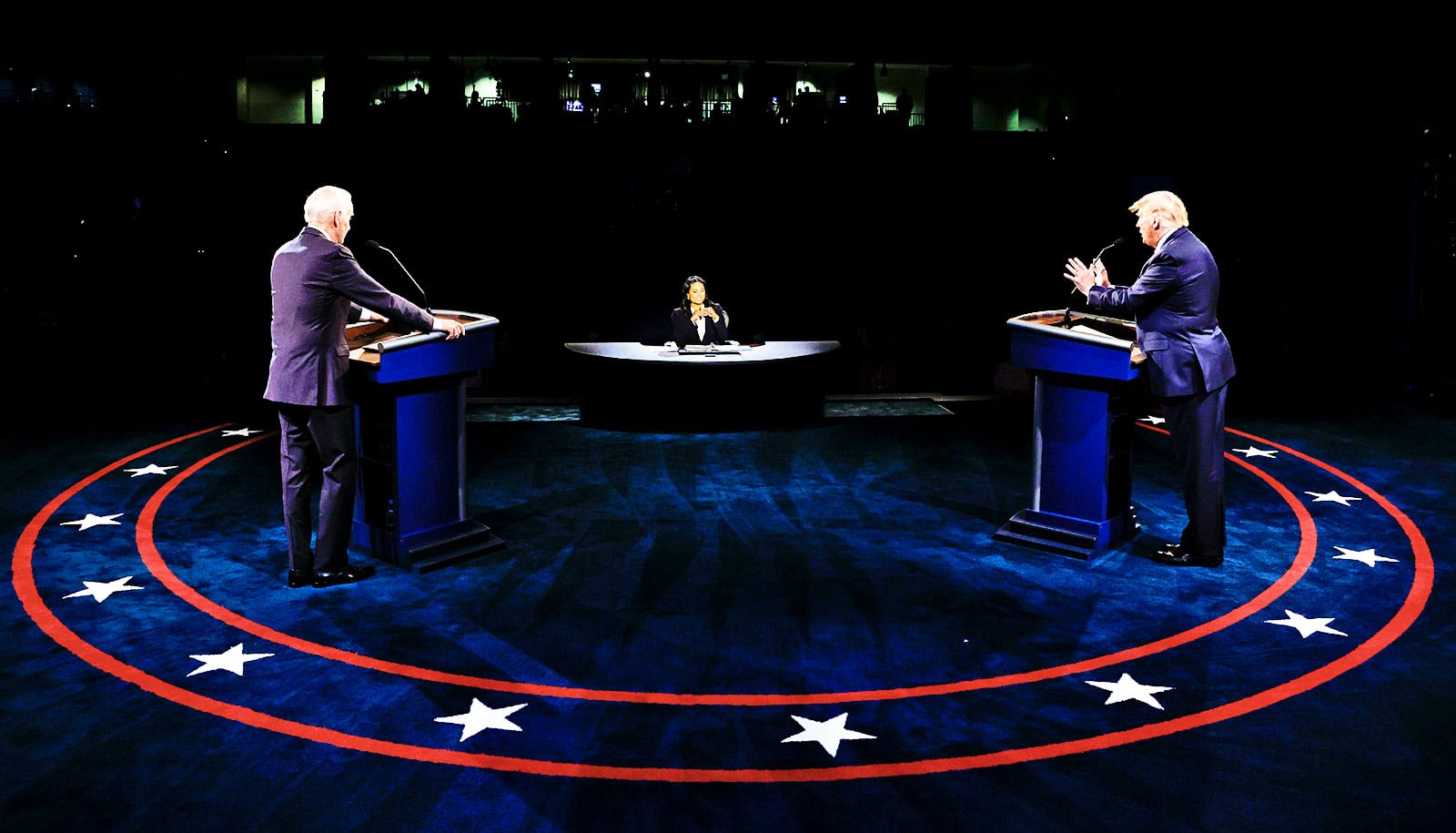Since the first nationally televised presidential debate in 1960—when John F. Kennedy’s careful image management was widely thought, though more recently debated, to have contributed to his election victory over Richard Nixon—scholars have sought to understand how presidential debates influence the electorate.
When it comes to vote choice, research has generally suggested little impact from watching debates. Debate viewers tend to be among the most politically engaged and thereby likely to have their minds made up well before the debate. For these people, debates serve largely as a spectator sport, watched mainly to see how one’s preferred candidate performs and with little to no effect on their opinions of the candidates.
That said, some research has suggested that candidates’ debate performances can impact how favorably they are perceived by voters, which can affect the choices of undecided voters. Additionally, a lopsided debate performance or significant gaffe committed by a candidate can have a lasting effect on candidate evaluations.
However, research into potential indirect effects of debates—by commanding significant media attention in the days prior to and after their occurrence—have offered stronger evidence of their influence.
One such effect involves learning, whereby voters make gains in their understanding of the issues and candidates after the debates. But while more knowledgeable voters tend to learn more from viewing the actual debates, less knowledgeable voters have been shown to narrow this gap in the days following debates due to debate-related content being hard to avoid even among those who are the least politically engaged.





















Discussion about this post